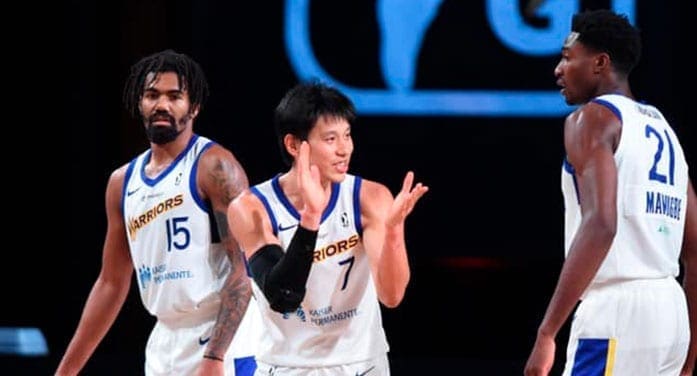
Jeremy Lin is probably best known to basketball fans for “Linsanity,” the amazing streak of clutch and dramatic moments he had with the New York Knicks in 2012. Many Canadians know Lin for the spark he brought to the court when the Toronto Raptors won the National Basketball Association (NBA) championship in 2019.
Lin recently came to public attention again, due to his response to an anti-Asian slur thrown his way during a game. He didn’t respond by simply beating the other player on the court, as he has so many times before. He used his platform as a professional athlete to speak out and take action. He felt he had to. His heart told him enough is enough.
“Being a nine-year NBA veteran doesn’t protect me from being called ‘coronavirus’ on the court,” he tweeted. “Being a man of faith doesn’t mean I don’t fight for justice, for myself and for others. So, here we are again, sharing how we feel. IS ANYONE LISTENING?”
Over the past year, there has been a significant rise in reported hate-filled and racist acts toward people who look Asian. And many of the attacks have been violent. The reasons for this are complex but the truth is that racism toward Asians is nothing new.
For decades, anti-Asian policies have been embedded in our culture. There have been head taxes on Asian immigrants, railway workers have been exploited and, of course, there was the tragedy of sending citizens of Japanese ancestry to internment camps during the Second World War. These people were given pennies on the dollar for their property and were unjustly imprisoned. Along the way, ethnic slurs have been commonplace.
Lin’s recent comments made me question how I had acted in the past. Had I done enough for my Asian neighbours and especially for my students?
Fortunately, the magic of social media has allowed me to re-establish contact with many of these important people in my life and ask them directly.
Early in my career, I taught in a small high school in the United States where almost all of our students were visible minorities, the majority of them Vietnamese. It was a wonderful place to work.
Despite still being on the sunny side of 30, I was given a great deal of responsibility and the freedom to put my ideals into practice. As now, I believed in regular exercise, that everyone could learn, and in the equality and infinite potential of each person. I taught and tutored our at-risk students, coached and was the assistant athletic director.
Though the school was diverse, every culture and every person was celebrated. One visitor described us as a salad, where everyone mixed but everyone maintained their distinct flavour. We celebrated the feast of Our Lady of Guadeloupe, Martin Luther King Jr. Day and the Lunar New Year. I was even given the opportunity to introduce the Canadian sport of broomball as an intramural activity, and we shared a lot of laughter.
When we competed in athletics with other schools, things sometimes got challenging and, quite frankly, it was the privileged white schools that gave us the hardest time. My players were honest with me about what was said and I told them what Lin’s coaches must have told him: “They’re trying to get into your head because they know you’re better than they are. Be the bigger person. Smile. Hold your head high and let your ability do the talking.”
Was that enough?
I went to the school’s alumni page to find out. The response I got from the point guard on my basketball team floored me.
“We let our actions on AND off the court and fields do the talking. If a player on the opposing team fell, we helped them up regardless of the colour of their skin. Sure, some may have heard racist remarks and what not, but we didn’t let it bother us. We only hoped the ref called a fair game. Life never came with instructions! Thank you for showing us how to be better teens and humans along the way to adulthood!”
Now my students are older than I was when I taught them. They have families and are the movers and shakers, the people working to build a better and more equitable world.
I don’t know if we can ever do enough to end hate and racism. I agree with Jeremy Lin that one can be the bigger person and still tell someone that their words and actions are unacceptable. It’s possible to forgive while holding others accountable for their wrongdoing.
In fact, it’s what we all have to do.
As Lin said, “We need to have love, empathy and compassion for each other.” But that doesn’t mean we can allow people to avoid accountability for hate-filled, racist and violent acts against their fellow humans.
Troy Media columnist Gerry Chidiac is an award-winning high school teacher specializing in languages, genocide studies and work with at-risk students. For interview requests, click here.
The views, opinions and positions expressed by columnists and contributors are the authors’ alone. They do not inherently or expressly reflect the views, opinions and/or positions of our publication.

